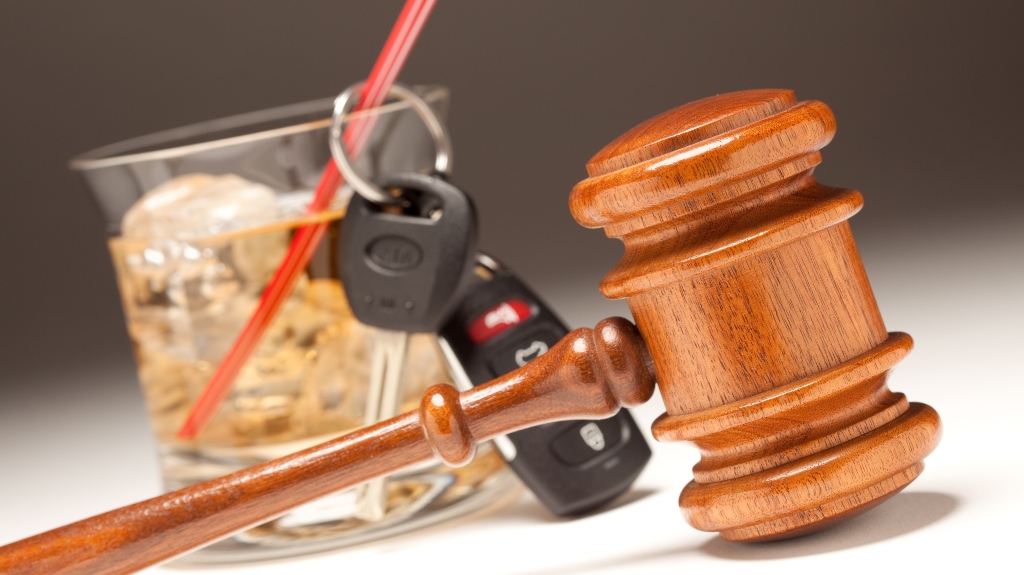What is a Habitual Traffic Offender Suspension?
If you have had numerous recent traffic violations, your driving privileges may be at risk. In Massachusetts, drivers who accumulate a certain number of driving violations within a specific time period may be determined to be habitual traffic offenders, and the Registry of Motor Vehicles (RMV) imposes harsh penalties on these drivers. The RMV makes a determination of whether or not you are a habitual traffic offender based on your driving record. If you are deemed to be a habitual traffic offender, the RMV will suspend your license for 4 years.
Unlike most RMV license suspensions, before any suspension is imposed against you as a habitual traffic offender, you have a right to a hearing and you have a right to have a lawyer represent you at that hearing. It is the burden of the RMV to prove that you are in fact a habitual traffic offender. Even if you are deemed a habitual traffic offender, there are still paths available to you to obtain a hardship license. Our firm can advocate for you before the RMV and before the Board of Appeal (BOA) to minimize any impacts to your driving privileges.
What Triggers a Habitual Traffic Offender Suspension?
In Massachusetts, the law specifies that if you are convicted of 3 or more separate instances of major traffic violations in a 5 year time period, you could be deemed a habitual traffic offender. G.L. c. 90 § 22F. Major traffic offenses include:
- Operating under the influence (OUI)
- Negligent operation
- Operating without a license
- Making a false statement on an application for license or permit
- Leaving the scene of an accident
- Operating after suspension
- Commission of a felony in which a vehicle was used
Additionally, you could be considered a habitual traffic offender if you are found responsible for 12 or minor traffic violations within a 5 year period, or a combination of minor and major traffic violations for which the RMV may issue a suspension of 30 days or more.
Because this type of suspension is based upon criminal offenses related to driving, the best way to avoid a habitual traffic offender suspension is to fight your OUI case or your criminal driving case. Your attorney should also review any prior OUI convictions to determine whether you have a valid basis to vacate your plea, which may affect your qualification as a habitual traffic offender.
How Does the RMV Make a Habitual Offender Determination?
The RMV will use the information contained in your driving record to determine if you have enough qualifying convictions and violations to be considered a habitual traffic offender. The RMV will often count violations that do not in and of themselves permit a 30 day suspension, such as speeding or failure to stop at a traffic signal, but may instead trigger a license suspension for posing an immediate threat to public safety. Andonian v. Registry of Motor Vehicles, 29 Mass. App. Ct. 942 (1990). This may not apply to every minor traffic violation, but it is important to be mindful of each and every offense the RMV is considering to hold the RMV to its burden.
Additionally, offenses from other jurisdictions may also be considered when counting accumulated offenses. Labrecque v. Board of Appeal on Motor Vehicle Liability and Bonds, 64 Mass. App. Ct. 100 (2005). Under the law, the RMV is required to treat qualifying offenses that occurred out of state just as if they had occurred in Massachusetts, and to suspend your Massachusetts license accordingly. G.L. c. 90, § 22 (c).
Not every individual offense will always count as an independent offense. According to G.L. c. 90 § 22F, if you have no prior traffic violations and any of these offenses occur at the same time, or within a six hour period, those offenses will be considered a single violation. This means that if you are charged with OUI, negligent operation, and operating after a suspension all due to one incident but have a clean driving record, these three violations will only count as one offense for the purposes of a habitual traffic offender determination. It will be important for you and your attorney to determine that any offenses on your record are properly counted.
Your driving record is heavily relied upon by the RMV. These records, however, are not infallible, and are frequently found to contain incorrect or misinterpreted information. Due to the RMV’s ability to broadly include prior traffic offenses, it is imperative that you hire an attorney who will closely examine your driving record and every prior conviction counted by the RMV.
The Law Offices of Joseph D. Bernard care about the future of their clients. The professionals at the firm understand your situation and will fight for the best outcome for you to get on with your life.
What Happens at a Habitual Traffic Offender Hearing?
If the RMV finds your driving record contains enough qualifying convictions for a habitual offender determination, there will be a hearing for you to challenge any of the accumulated offenses. The hearing is required to take place within 6 months of the third major traffic violation or conviction, and the RMV is required to provide you with notice of the hearing at least 21 days before the hearing date. If either of these time requirements are not met, you may be able to challenge your habitual traffic offender suspension based upon a violation of your constitutional right to due process.
At the hearing, you will have the opportunity to show why you should not be deemed a habitual traffic offender. You have a right to have a lawyer represent you at this hearing and to present evidence in your defense. If you believe there is an error on your driving record or otherwise deny any of the convictions on your record, the RMV must prove that it was indeed you who committed the offense. If the RMV cannot, using the evidence it has, prove that you committed the offense, the RMV can refer the issue to the court that handled the alleged offense. The court will then make a determination whether a conviction actually entered against you and submit its decision to the RMV.
Driving records are far from perfect, and we often find that they contain incorrect information. If you have been deemed a habitual traffic offender, our attorneys will scrutinize your driving record for potential errors that may have led to your being mislabeled.
Am I Eligible for a Hardship License?
You may be eligible for a hardship license after serving at least 1 year of the suspension period. In order to be eligible, you must also have completed the National Safety Council Driver Retraining Course within the past 3 years, and any other suspensions you are serving must have ended. In order to qualify for a hardship license, you have to be able to prove that you have an actual hardship. This can generally be in relation to work, school, medical need, family responsibilities, or other obligations. Keep in mind that you must be able to provide the proper documentation to support the hardship to the RMV, usually through a detailed letter.
In order to apply for a hardship license, you must request a hearing at the RMV. If you are granted a hardship license, you may be required to install an ignition interlock device in your vehicle if you have also completed a suspension for a subsequent OUI offense. An interlock ignition device is required if:
- An OUI revocation has completed while the HTO has been in effect AND there are two or more OUI(s) on the record; OR
- An OUI revocation has completed and the applicant never reinstated for the OUI offense and there are two or more OUI(s) on the record
If you apply and are denied a hardship license, you have a right to appeal the denial to the Board of Appeal (BOA). Our Massachusetts OUI attorneys regularly appear before the RMV and BOA and have successfully advocated for license reinstatement for habitual traffic offenders. With extensive experience before these bodies, we can put you in the best position to get back your license.
Lawyers Who Fight Habitual Traffic Offender Suspensions
The Massachusetts DUI lawyers at the Bernard Defense Team have an in-depth understanding of both the RMV process and how to identify problems in your driving record. If you are facing a habitual traffic offender suspension, it is imperative that you have experienced lawyers working to evaluate your driving record as well as the steps the RMV has taken to suspend your license for potential errors that may have resulted in you being mislabeled as a habitual traffic offender. Let our attorneys work to help you maintain or regain your license.
Contact the Bernard Defense Team for a free case consultation!



